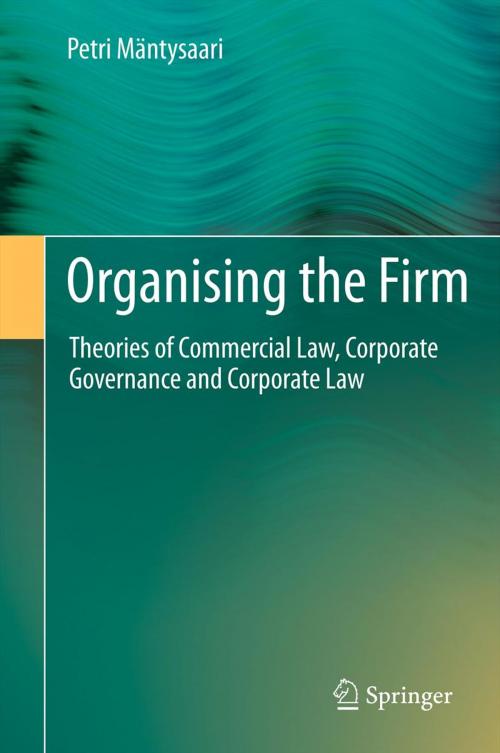Organising the Firm
Theories of Commercial Law, Corporate Governance and Corporate Law
Nonfiction, Reference & Language, Law, Commercial, International| Author: | Petri Mäntysaari | ISBN: | 9783642221972 |
| Publisher: | Springer Berlin Heidelberg | Publication: | September 18, 2011 |
| Imprint: | Springer | Language: | English |
| Author: | Petri Mäntysaari |
| ISBN: | 9783642221972 |
| Publisher: | Springer Berlin Heidelberg |
| Publication: | September 18, 2011 |
| Imprint: | Springer |
| Language: | English |
The theoretical basis of commercial law, corporate governance law, and corporate law is still unsatisfactory. There essentially is no theory of commercial law, and existing theories of corporate governance and corporate law cannot explain the behaviour of firms or the contents of existing regulation. This book proposes a coordinated solution for all three areas. The starting point is that all three areas deal with the organisation of firms. Commercial law, corporate governance, and corporate law are therefore studied from the perspective of the firm rather than that of the judge or the investor. Changing the perspective makes it easier to formulate an "umbrella" theory of commercial law, and theories of corporate governance and corporate law as applications of the main theory. The book provides examples of how the proposed theories work by studying legal corporate governance tools and practices that increase the sustainability of the firm. Sustainability can be bolstered by making the governance model more self-enforcing and ensuring that it fosters innovation.
The theoretical basis of commercial law, corporate governance law, and corporate law is still unsatisfactory. There essentially is no theory of commercial law, and existing theories of corporate governance and corporate law cannot explain the behaviour of firms or the contents of existing regulation. This book proposes a coordinated solution for all three areas. The starting point is that all three areas deal with the organisation of firms. Commercial law, corporate governance, and corporate law are therefore studied from the perspective of the firm rather than that of the judge or the investor. Changing the perspective makes it easier to formulate an "umbrella" theory of commercial law, and theories of corporate governance and corporate law as applications of the main theory. The book provides examples of how the proposed theories work by studying legal corporate governance tools and practices that increase the sustainability of the firm. Sustainability can be bolstered by making the governance model more self-enforcing and ensuring that it fosters innovation.















